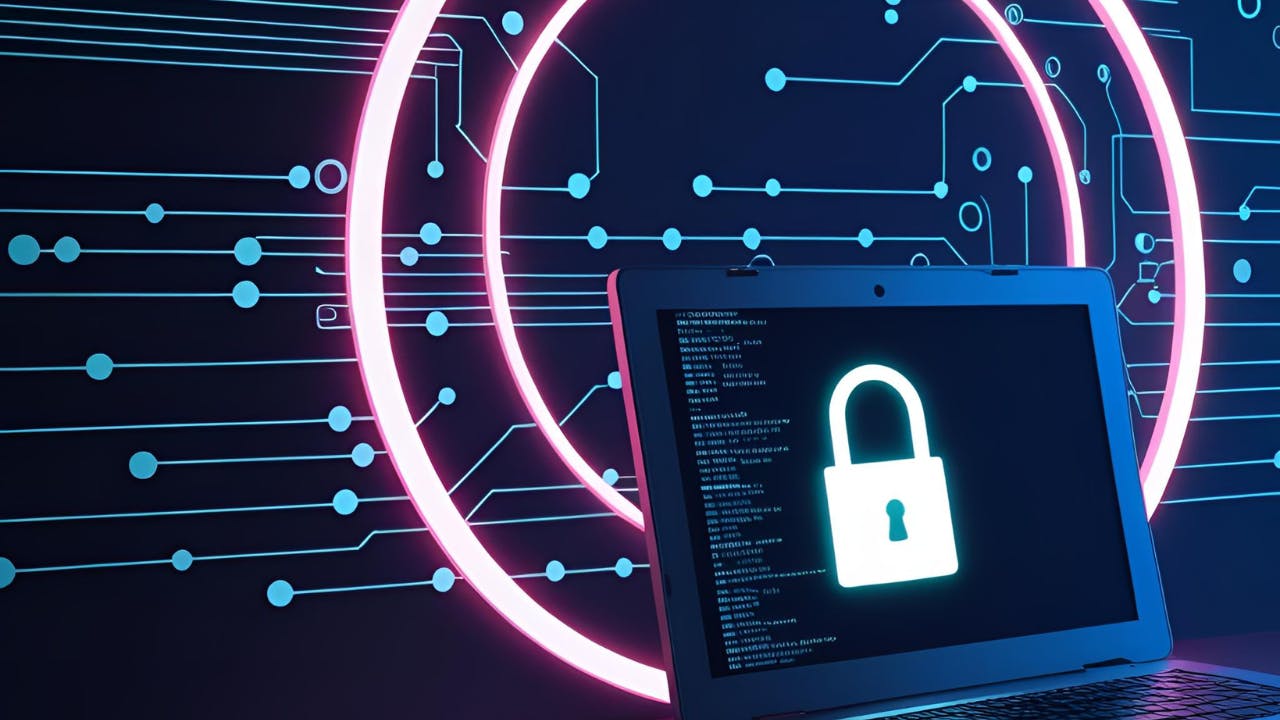You trust RSA to protect your crypto wallet. ECC secures your emails.
But by 2030, quantum hackers could crack both in under a week.
Sounds like sci-fi? It’s not.
Meanwhile, quantum hackers aren’t just sitting around. Cybercriminals and state-backed actors are already harvesting encrypted data, planning to decrypt it later once quantum tech matures. This tactic even has a name: “harvest now, decrypt later.”
So, here’s the real question: Is your encryption future-proof against quantum hackers?
Table of Contents
- What is Quantum Hacking?
- Why 2030 Matters
- What is Post-Quantum Cryptography?
- Quantum Key Distribution vs. Post-Quantum Cryptography
- How Quantum Attacks Will Break the Internet As We Know It
- How to Protect Your Sensitive Data From Future Quantum Attacks
- Bottom Line: Don’t Wait For Q-day
- Frequently Asked Questions
What is Quantum Hacking?
Quantum hacking is the use of quantum computers to crack encrypted data. The threat hinges on this:
Quantum systems can solve certain mathematical problems better than classical computers, and that changes everything.
There are two quantum algorithms that matter most:
- Shor’s Algorithm: It breaks RSA, ECC, and DH encryption.
- Grover’s Algorithm: It accelerates brute-force attacks against symmetric ciphers like AES.
Once scalable quantum systems arrive, Shor’s Algorithm alone could render public-key cryptography (used in nearly all secure communications) obsolete.
Why 2030 Matters
So, why does the quantum hacker threat suddenly feel urgent?
This isn’t just future talk. It’s real.
Security experts have dubbed the moment quantum systems break encryption as “Q-Day,” and many believe it’s coming by 2030.
According to a 2025
- 60% of large enterprises expect Q-Day within a decade.
- 70% are already preparing by adopting quantum-safe solutions.
Meanwhile, the U.S. government’s Executive Order now mandates federal agencies to start transitioning to post-quantum cryptography (PQC) by 2030. Estimated cost?
What Is Post-Quantum Cryptography?
Post-quantum cryptography (PQC) refers to encryption techniques designed to resist attacks from quantum computers and neutralize quantum hackers.
Unlike RSA or ECC, PQC uses hard mathematical problems that even quantum systems struggle with. These include:
- Lattice-based cryptography.
- Hash-based schemes.
- Code-based encryption.
In 2024,
- CRYSTALS-Kyber
- Dilithium
- SPHINCS+.
These standards came out of an 8-year global competition featuring 82 algorithms from 25 countries.
Quantum Key Distribution vs. Post-Quantum Cryptography
Another buzzword you’ve probably seen is Quantum Key Distribution (QKD).
QKD uses quantum mechanics to securely exchange cryptographic keys in a way that, if intercepted, is immediately detectable.
While it’s currently limited by distance, infrastructure, and high costs, it’s a glimpse into how secure communication will look in a post-quantum world.
That’s why post-quantum cryptography is still the go-to for most real-world applications. It’s software-based, scalable, and integrates with existing internet protocols.
The
How Quantum Attacks Will Break the Internet As We Know It
Make no mistake: quantum attacks will completely change cybersecurity.
Every device that uses encryption, from your phone to satellites, will need an upgrade to resist quantum attacks.
Here’s what’s at stake:
- Hackers who harvest encrypted data today could expose it tomorrow.
- Quantum computers will render RSA and ECC useless.
- Nation-states and corporations could lose their most sensitive data.
- Outdated systems will instantly become vulnerable.
Even if Q-Day isn’t here yet, quantum hackers are laying the groundwork now.
How to Protect Your Sensitive Data From Future Quantum Attacks
You think quantum hacking is a problem for 2030? Think again.
Data encrypted today could be compromised tomorrow.
Here’s how to get ahead of quantum hackers:
Take inventory of your encryption systems.
Start by identifying where and how you use encryption. TLS, email, backups, databases, VPNs, everything.
Start testing post-quantum algorithms.
Try out NIST’s PQC finalists like Kyber and Dilithium. Pilot them in test environments now.
Adopt crypto-agility.
Design systems that allow easy updates or algorithm swaps. Don’t hard-code cryptographic choices.
Educate your team.
Train your engineers and architects on quantum technology, new encryption methods, and cryptographic algorithms.
Follow NIST and ETSI guidance.
Both are leading global standards efforts. Watch their updates closely, standards, and migration frameworks.
Plan for hybrid models.
Use a mix of classical and quantum-resistant encryption during the transition.
Bottom Line: Don’t Wait For Q-day
We’re not guessing anymore. The quantum future is coming, and quantum hackers will be ready.
If we don’t update our encryption in time, the backbone of digital security will snap.
The good news? You’ve still got time to get ready.
Start building crypto-agility, test, and transition to post-quantum cryptography.
Quantum won't break what you protect today, unless you ignore the warning signs.
Frequently Asked Questions
Is quantum computing a cybersecurity threat?
Yes. Quantum computers will eventually break RSA and ECC using algorithms like Shor’s. Quantum hackers are already preparing. So, it’s not about if, it’s about when.
What are the main goals of quantum cryptography?
Quantum cryptography aims to ensure secure, unbreakable communication using techniques like QKD.
Can quantum encryption be broken?
Quantum encryption methods cannot be broken by traditional means. Theoretically, they are secure, and interception disturbs the system and triggers detection.
What does it mean to be 'quantum-ready' in 2025?
Being quantum-ready means:
- Auditing your current encryption.
- Testing post-quantum cryptographic solutions.
- Staying updated on NIST’s standards.
How will quantum computing affect cybersecurity?
Quantum computing will force a global shift to new encryption standards, redefine secure protocols, and create new cyber defense strategies.
Can Bitcoin be hacked by a quantum computer?
Potentially, yes. If a quantum computer gains access to your public key, it can use Shor’s algorithm to find your private key. Bitcoin and other blockchains are not quantum-proof yet.
Found this useful? Bookmark it, share it, and forward it to your security team. Because the future isn’t waiting, and neither are quantum hackers.


